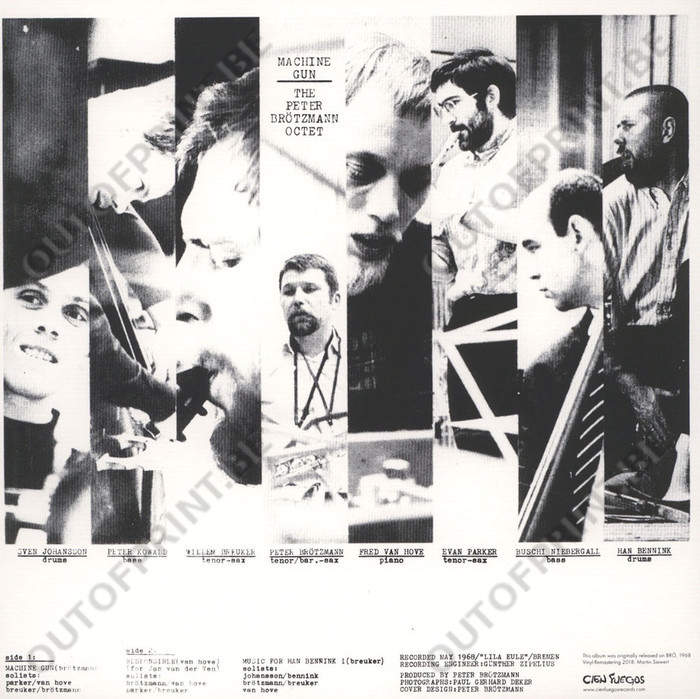

This is a much more subtle, complex and indirect process at the end of which the way I think, experience and feel gets channeled into music." This doesn't mean that if I am angry at a certain American politician, or if I'm worried about what is happening in the Middle East, my feelings will be expressed directly in how I improvise. "Music is always the reflection of a worldview, of a way of life, of thoughts about politics, about society, about community. "I don't believe in art that is based on purely aesthetic motives," he says now. Twenty years ago, when Brotzmann was asked why he plays so loudly, he replied: "How can I play quietly when people are dying of hunger in Ethiopia?" This is not just an aesthetic preference. I love the moment when the music makes me lose myself." I especially love when the music overwhelms me, exhausts me. This dimension has to be present in my music.

Ever since then I get great enjoyment from the physical effect of music, from its effect on the body. He immediately recalls the first performance he saw as a child, at the start of the 1950s, a concert by jazz pioneer Sidney Bechet, who played "as loud as he could, and this made a huge impression on me.

Why does he play so loud? "The best answer I can give is that I just like to, I need to," says Brotzmann, 67, in a telephone interview from Germany. There are hardly any images jazz fans and journalists have not used to describe the astoundingly powerful music of Peter Brotzmann, who will be performing in Israel tomorrow and Wednesday. A herd of elephants fleeing from a fire, only three times as noisy.
#Peter brötzmann machine gun free#
If there is one Peter Brotzmann record to own, this is it if there is one European free jazz record to own, this it.A machine gun. Originally released on Brotzmann's own Brö imprint, Cien Fuegos has remastered the original album and lovingly presented it here on this limited, 180 gram reissue. The octet is rounded out by several other players who would form the foundation of the European free avant-garde: Fred Van Hove, Peter Kowald, Sven Ake-Johansson, and Buschi Niebergall. One of two drummers in the group, Han Bennink loudly declares his intent to push free percussion in a direction unique from his American counterparts, Murray, Graves, and Ali. There are even hummable themes, however brief they may be. Machine Gun is not all volume, though: there are passages of silence and chilling hints of space between barrages of instrumental fury. Noise artists for generations to come would give everything to be half this abrasive. Even today, so many years after this was captured to tape, it's still startling, and still brings to question any ideas you might have about what could be considered "jazz." Yes, American fire music players had broken countless barriers earlier in the 1960s, but nobody had ever really sounded like this before. Machine Gun opens with a deafening blast of pure sound, a pummeling broadside of Brotzmann, Evan Parker, and Willem Breuker's saxophones. Peter Brotzmann's second release as a leader, this was the album that firmly established his voice as a performer and an improviser, defined what would become the FMP aesthetic, and truly distinguished European free-music from its American counterpart. 2018 marks the 50th anniversary of Machine Gun's release, but it's still just as shocking and powerful a record as ever, a stunning and bewildering listen from beginning to end.


 0 kommentar(er)
0 kommentar(er)
